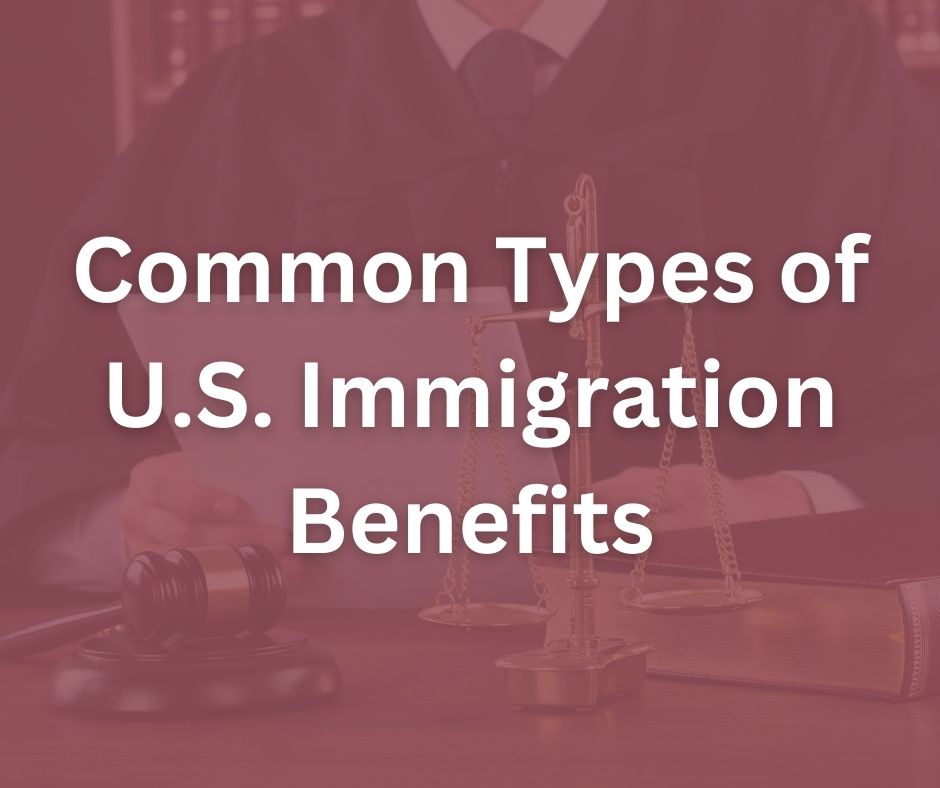
People come to the U.S. for all kinds of reasons—to study at world-class institutions, to work, to live, or to seek a better life for themselves or their children.
Before they do, they generally seek immigration benefits. But what is an immigration benefit? In short, immigration benefits are legal entitlements to stay in the U.S. temporarily or permanently.
If you plan to apply for immigration benefits in the U.S., EMP Law can help. Our experienced Winston-Salem and Charlotte immigration attorneys are passionate about assisting individuals to face down large, faceless entities like the U.S. immigration system. And we have years of experience helping clients get immigration benefits of all kinds.
Contact us online or call (336) 724-2828 today for assistance.
What Are Immigration Benefits?
Immigration benefits encompass many broad categories, including the following:
- Immigrant visas,
- Nonimmigrant visas,
- Naturalization,
- Humanitarian statuses, and
- Miscellaneous statuses.
Each benefit type requires you to meet specific criteria. And as long as you hold that status, you must also follow specific rules. If you do not, you can be deported or removed from the country.
What Are Immigrant Visas?
When you receive an immigrant visa, you receive a green card and permanent resident status.
You can obtain an immigrant visa only if you fit into one of several narrow, legally defined categories, including one of the following:
- Family-based visas. U.S. citizens can petition for their spouses, children, parents, and siblings to get an immigrant visa. Lawful Permanent Residents (LPRs) can petition for spouses and unmarried children under age 21.
- Employment-based visas. U.S. employers can sponsor foreign workers, and some highly skilled foreign workers can sponsor themselves for this type of visa.
- Humanitarian-related visas. Certain beneficiaries of humanitarian programs can apply for green cards, including asylees, refugees, and S, T, and U-visa holders.
- Diversity lottery visas. Non-citizens who win an immigration lottery run by the U.S. government can get their visas.
If you qualify for a family-based visa but have an abusive parent, spouse, or child who will not sponsor you, you can sometimes self-petition under the Violence Against Women Act (VAWA).
With the exception of immediate relatives—spouses, unmarried children under 21, and parents of U.S. citizens—family, employment, and diversity lottery visas are all subject to annual numerical limitations. As a result, backlogs in processing times are common.
What Are Nonimmigrant Visas?
Nonimmigrant visas are the most commonly issued U.S. immigration benefits and may be one of the first things that come to mind when you wonder what immigration benefits are. These visas authorize a temporary stay in the U.S. for a specific purpose.
Common nonimmigrant visas include:
- Fiancé(e) visas (K visas),
- Tourist/business visas (B visas),
- Student visas (F, M, and J visas), and
- Temporary work visas (H, L, O, P, and Q visas).
With few exceptions, to receive a nonimmigrant visa, you must prove you have “nonimmigrant intent,” which is the flip side of having “immigrant intent.” Having nonimmigrant intent means you do not intend to settle long-term in the U.S. The three prominent exceptions to this requirement are K, H-1B, and L visas.
What Is Naturalization?
When you naturalize, you become a U.S. citizen. Generally, you must have a green card first. To successfully naturalize, you must generally demonstrate English-language proficiency and pass a civics test.
If you obtained your green card based on your marriage to a U.S. citizen, you can naturalize after three years as an LPR. Other green card holders can apply to naturalize after five years. You can also naturalize if you have honorably served in the U.S. military for at least one year.
What Are Humanitarian Statuses?
In addition to official visas and obtaining citizenship, there are some statuses that sit in an in-between zone.
These statuses are primarily based on international humanitarian concerns and include:
- Asylum and refugee status*,
- Humanitarian parole,
- Processes for Cubans, Haitians, Nicaraguans, and Venezuelans (CHNV),
- Uniting for Ukraine,
- Deferred Action for Childhood Arrivals (DACA),
- Deferred Enforced Departure,
- Temporary Protected Status (TPS), and
- Visas for victims of human trafficking (T-visas) or other crimes (U-visas)*.
Some of these statuses lead to green cards, but most do not. Asterisks mark those that offer a path to obtaining a green card.
What Other Benefits Are There?
Apart from the topics already discussed, there are a handful of miscellaneous U.S. immigration benefits that may apply.
For example, you may be eligible for:
- TN (NAFTA) nonimmigrant status—for professional Mexican and Canadian workers,
- An E-3 visa—for Australian specialty workers, or
- The Visa Waiver Program—for nationals of several countries who can travel to the U.S. for business or tourism without a visa.
These benefits are generally based on treaties or unique relationships between the U.S. and other countries.
Contact Our Experienced Immigration Lawyers For Help
Whether you want to live in the U.S. temporarily or permanently, we can help you apply for immigration benefits. We are not afraid of complicated cases, including where you have an immigration or criminal history, that may make obtaining benefits more difficult. Reach out online or call (336) 724-2828 today to learn about what we can do for you.


